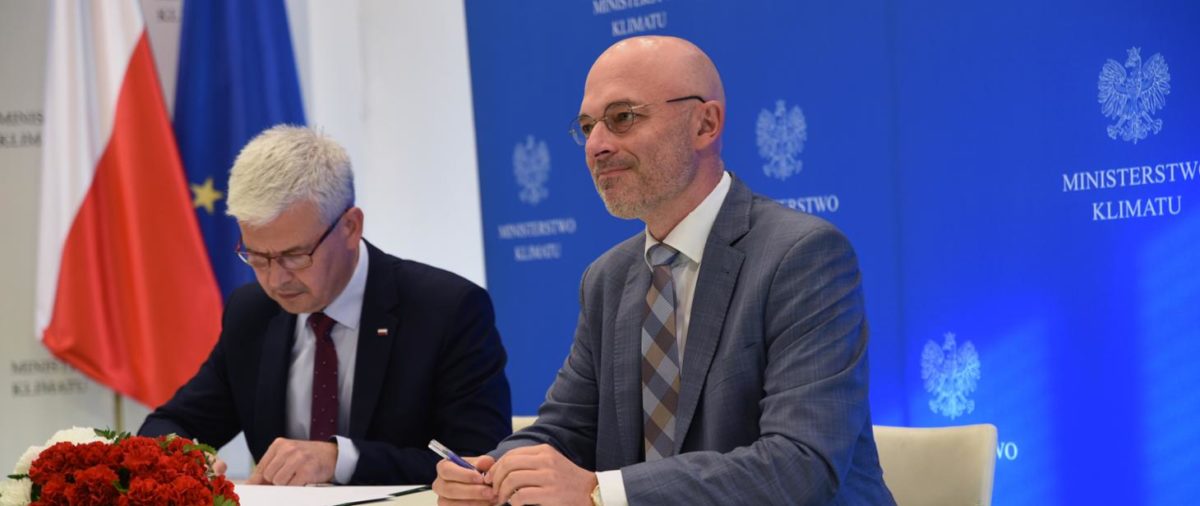Polish climate minister Michał Kurtyka has said the government will support and coordinate a domestic PV industry effort to mobilize and consolidate a Polish supply chain and develop an industrial strategy for the nation to contribute to the EU's European Green Deal.
Kurtyka and representatives of the Polish solar manufacturing industry this week signed a letter of intent to work together on the goals.
“Polish PV manufacturer companies from the photovoltaic industry will officially join forces … which will be reflected in the signing of a letter of intent to set up cooperation for the development of the PV industry and the conclusion of a sector agreement,” said Ireneusz Zyska at the meeting. The deputy climate minister and government plenipotentiary for renewables added: “The main goal of this cooperation is to mobilize and consolidate the domestic PV supply chain as well as to develop an industrial strategy and proposals for the contribution of Polish industry to the European Green Deal.”
The agreement is similar to the continent-wide Solar Europe Now initiative launched in April, which included 90 European solar companies who agreed to share knowledge, technology and best practice.
The Polish agreement signed this week mentions the possible development of a methodology to calculate the carbon footprint of solar products, despite the fact the nation's power mix is still heavily dependent on coal. Nations such as France or South Korea, which have introduced carbon footprint requirements into solar manufacturing, were able to do so because of extensive, CO2-free nuclear fleets.
Popular content
The letter of intent signed by Polish manufacturers also suggests making recommendations for solar-focused anti-dumping penalties to be applied on imports at the EU level and raising local content requirements as part of national industrial policy.
Polish PV manufacturers including Bruk-Bet Solar and Easy Solar began discussing joint initiatives to support the national industry in April. At the time, Grzegorz Wiśniewski, president of private research body the Institute for Renewable Energy, said Polish companies supplied only a quarter of the solar panels sold in the country last year, with Chinese products used in around 30% of PV projects, German modules in a quarter and Vietnamese and Italian components supplying the balance.
“Polish companies from the solar industry are planning a joint offensive,” said Zyska in radio interview in April. “This should take the form of a consortium. The goal is to take advantage of opportunities where Chinese suppliers were unable to meet their obligations during the corona[virus] crisis.”
This content is protected by copyright and may not be reused. If you want to cooperate with us and would like to reuse some of our content, please contact: editors@pv-magazine.com.



By submitting this form you agree to pv magazine using your data for the purposes of publishing your comment.
Your personal data will only be disclosed or otherwise transmitted to third parties for the purposes of spam filtering or if this is necessary for technical maintenance of the website. Any other transfer to third parties will not take place unless this is justified on the basis of applicable data protection regulations or if pv magazine is legally obliged to do so.
You may revoke this consent at any time with effect for the future, in which case your personal data will be deleted immediately. Otherwise, your data will be deleted if pv magazine has processed your request or the purpose of data storage is fulfilled.
Further information on data privacy can be found in our Data Protection Policy.